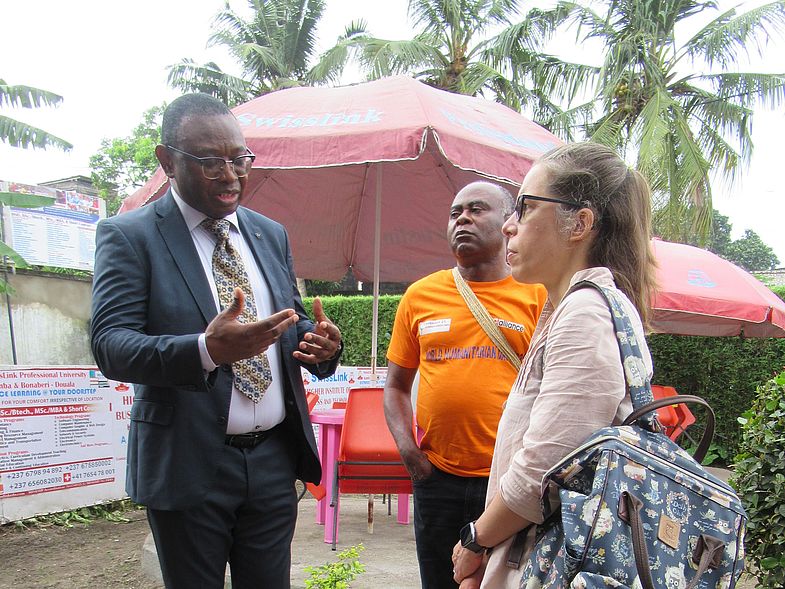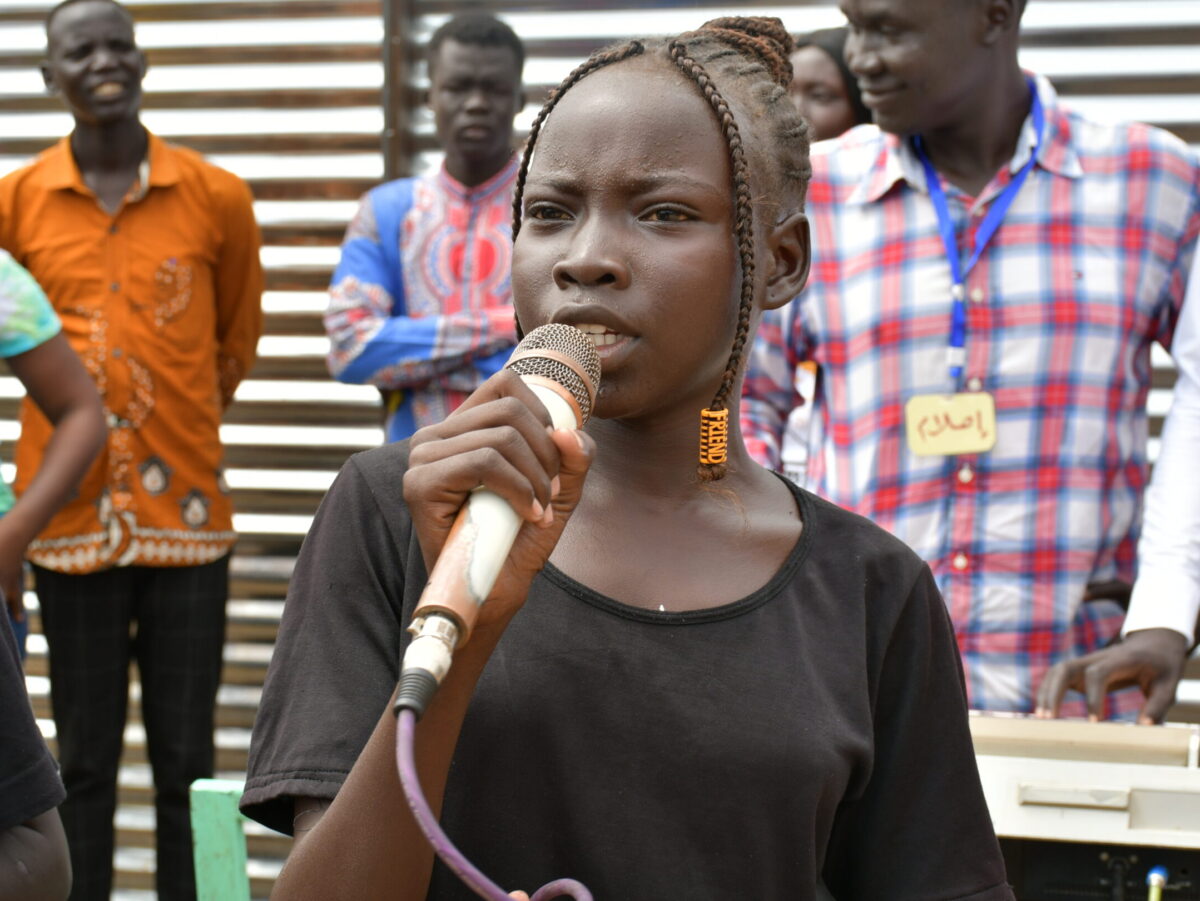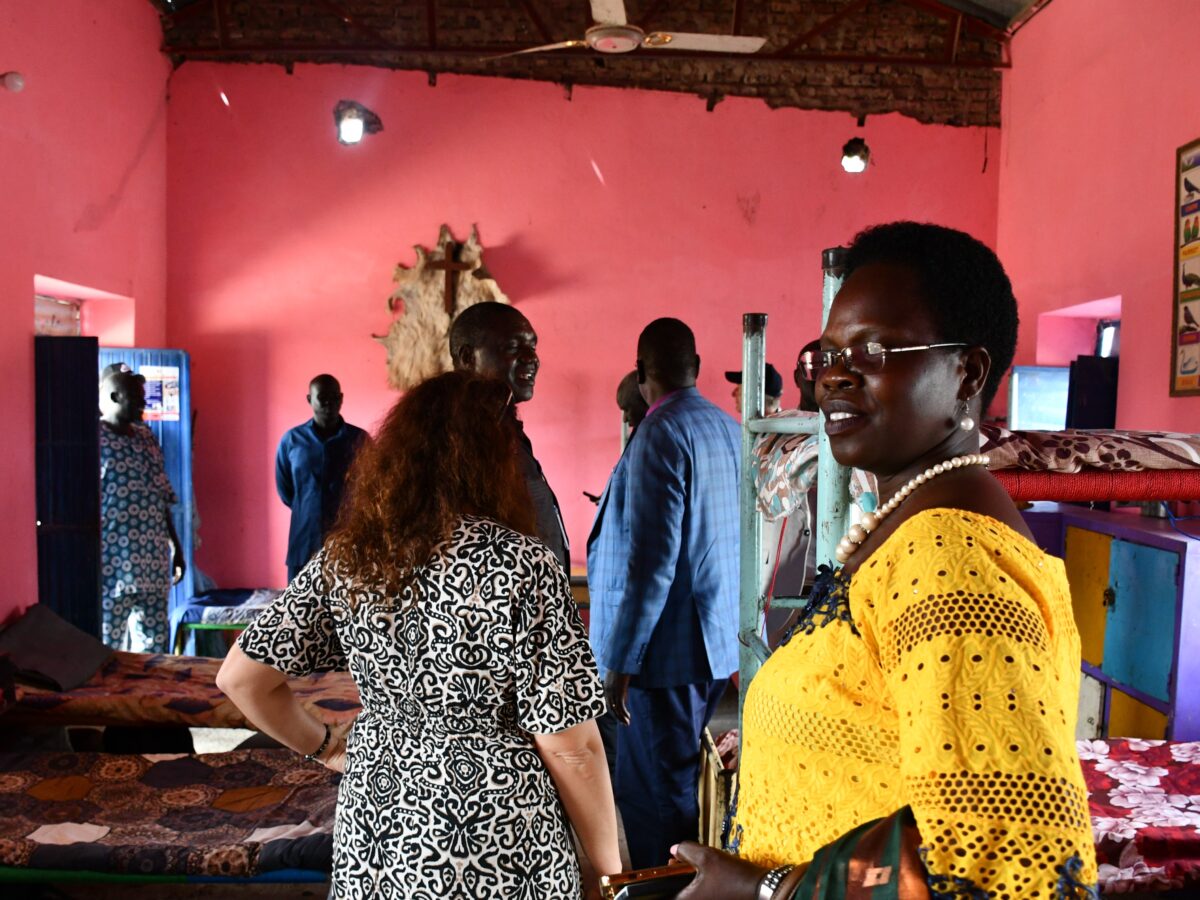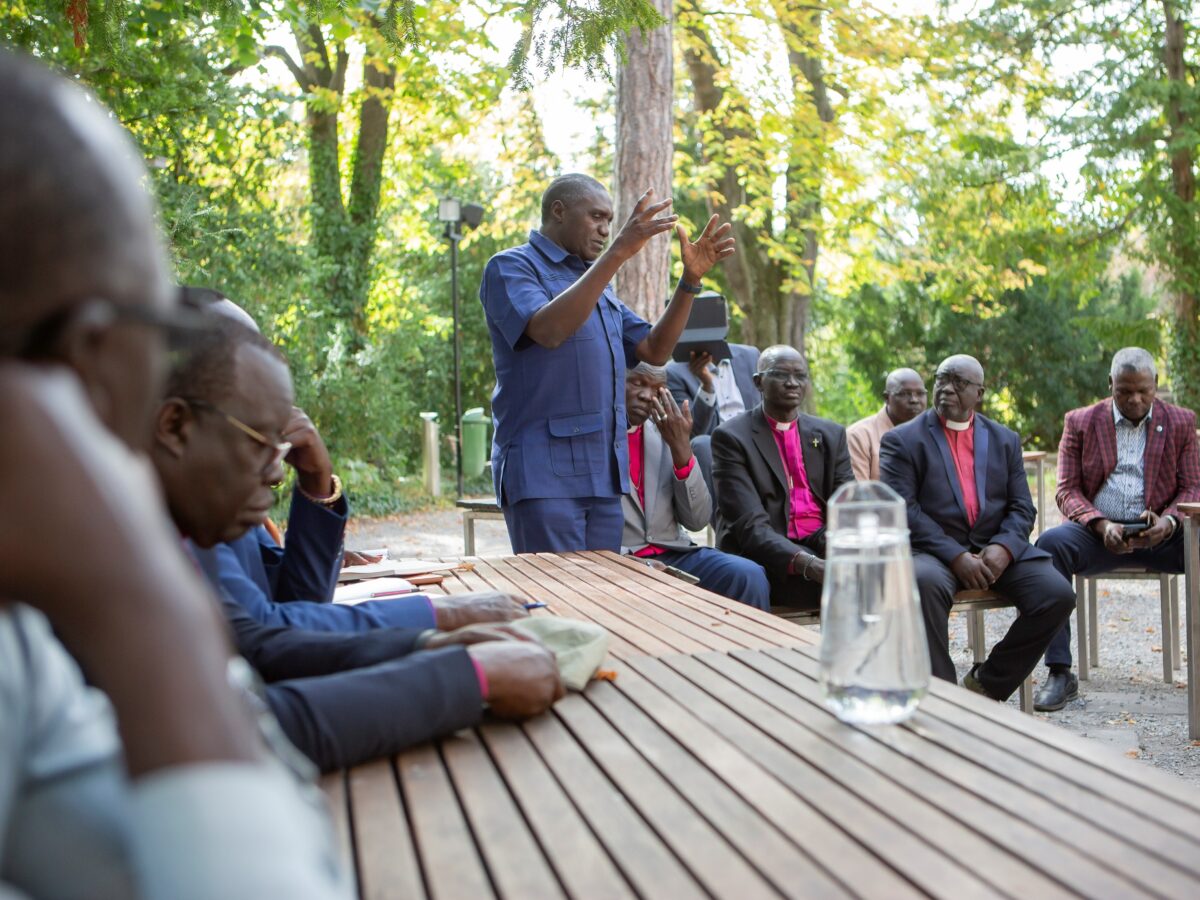Interview: Miriam Glass, Mission 21
There is war in Europe. What does that trigger in you?
It makes me realize that peace is not simply given. I see peace like a plant that has to be nurtured so that it grows and flourishes.
Mission 21 has no projects in Ukraine. Does this war have an impact on your work?
I see some connections to my work: At Mission 21, peacebuilding is an important area of activity. What we do in this can be applied in various conflict situations. In conflicts around the world, it is central that we do not make judgments. I very much hope that solidarity with people affected by violence and wars will continue or increase, with regard to Ukraine and other regions of the world. Aid to specific regions is not about an "either-or," but a "both-and."
What does peacebuilding look like in concrete terms?
Peace consists of non-violent relationships and non-violent conflict resolution. This is what peacebuilding is working towards. Peace means more than the absence of war. Peace is a process. How it develops depends on many factors.
What are these factors?
Economic, social, cultural-religious, historical, political and personal factors. Without peace, development is hardly possible. Conversely, peace can hardly be realized without a certain stability. It is strongly related to the question of livelihoods - are food, education, health secure? Is the environment intact, can people have a say in decisions? Do people feel understood or are groups excluded? Have wounds from the past been healed? Work for peace must be seen holistically. What it looks like in concrete terms varies from one conflict area to another.
Can you make an example?
In Nigeria, peacebuilding is currently central. There are conflicts between nomadic and sedentary groups, most of which belong to different ethnic and religious groups. In addition, crimes are hardly punished. Many young people are unemployed and have no income. And so there are violent clashes, kidnappings, cattle thefts. Our work in this situation: We bring young people from the hostile communities together. They live together for a while, even spend the night in the same place.
What happens in the process?
By being together, they realize that the others sometimes have very similar desires and goals to their own: In the end, they all want to feel secure, earn an income, perhaps start a family. Common interests emerge. In this way, prejudices can be overcome, and sometimes traumatic experiences can be healed.
That is certainly helpful on a small scale, on an individual level. Does it actually contribute to changing the situation?
Yes, that is our assumption. As part of these peacebuilding activities, there is also training on how to become active as a peacemaker. The participants analyze their context in order to work out the causes of tensions. Together, they consider where the leverage for change can be applied. Then they develop plans to implement their ideas.
Like what?
For example, with income generation projects. Our partners in Nigeria run vocational training courses for young people who have different religious and cultural backgrounds. The approach here is that we are not explicitly promoting peace in the first place, but are working to improve the economic situation and in the process overcome the rifts between the religious and ethnic communities. Because that clearly also has a peacebuilding aspect.
What if people at the grassroots level come to an understanding, but at the same time influential people, such as heads of state, continue to fuel conflicts? Violence can escalate further and further, as if in a spiral. We are working to ensure that escalation does not go on and on in everyday life by testing nonviolent ways of responding with people. Peace and peacebuilding is always a question of attitude. Where and how do I situate myself? How do I perceive other people and how do they perceive me? What are my images and experiences and those of the "others" shaped by? How do stereotyping or blind spots occur and how do we recognize them? But peacebuilding does not stop there. Many of Mission 21's partners, especially churches and church umbrella organizations, have influence at the national and continental level, right up to the control centers of politics.
Where is this the case?
For example, in South Sudan. There we see that leaders of the partner church and the federation of churches are very involved in the peace process and are consulted on political issues.
What is the role of emergency aid in peacebuilding?
It is one of many elements of support in emergency situations. What applies to all of our projects is particularly important here: We must always be careful to use our work to reduce existing tensions rather than exacerbate them. Emergency aid is very delicate in this respect: There is a great need, you can never reach everyone. The selection of beneficiaries is very conflict-prone. It is therefore very important that we and our partners have clear criteria, are trans- parent and work in networks. For us, emergency aid is always interreligious and, depending on the context, also cross-ethnic.
Mission 21 is a faith-based organization. What role do the churches play?
Through our roots in religious communities, we are integrated into a global network. Our partners enjoy a high level of trust among the population. At the same time, they have a network at national and international level. It is important that this extends beyond their own religion and church. For example, we work with Muslim and interfaith partner organizations.
What is the role of faith?
Faith and spirituality provide an additional dimension to draw hope in difficult situations, but also to process grief. This plays an important role in our work. In many of our partner countries, religion is a good way to reach people. Churches or mosques are places of community and sharing of experiences. Pastors can refer to stories from the Bible to reflect on current events. This is also important in contexts where people cannot express themselves freely. I think of Hong Kong, for example. There, freedom of expression is as good as abolished. By choosing a certain story for her sermon, a pastor can convey a message that people understand without further comment.
There are always setbacks in peacebuilding. Do you sometimes lose hope or patience?
No, not really. There is always encouragement, too. I have extreme respect for the people in our partner countries. They live in conflict-ridden contexts, and they work and work for peace without giving up hope. I think it is a privilege that we can encourage each other, that we are part of a worldwide community and that there is a solidarity with which we support each other. This is another way we can contribute to peace together.
All projects from the area of peacebuilding can be found at:
► Support you our work - thank you






